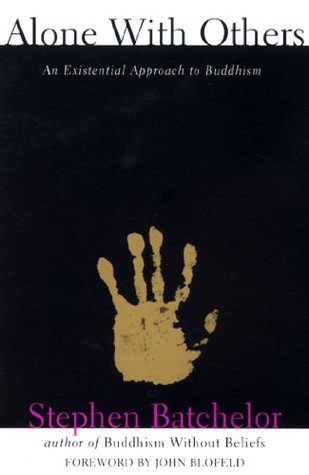More on this book
Kindle Notes & Highlights
Read between
February 7 - March 29, 2021
I was alone at birth; I must die alone; and, in a sense, I am always alone, for the gulf separating me from others can never satisfactorily be bridged.
The true value of any dogma or belief lies in its ability to point beyond itself to a deeper reality which can not be readily articulated in a simple formula or expression.
For the average man the scientific worldview provides a clear-cut and rational picture of the universe, but it usually fails to account for any underlying aim, purpose, or meaning.
Despite our domination of the forces of nature and our highly developed technology, we have come to feel ourselves as empty, alienated, anxious, and lonely, without any real inner purpose or meaning to our existence.
At present one is usually sacrificed to the demands of the other: either Buddhism is only partially accepted (e.g., as a meditation technique), or it is watered down so as to be compatible with certain modern prejudices, or the insights of contemporary culture (e.g., the natural sciences) are unthinkingly discarded in order to embrace an archaic view of the world that seems to be demanded by Buddhist faith.
Our enquiry here is based on the ontological structures of man’s being-alone and being-with.4 These fundamental elements are revealed in the paradoxical characteristic of existence of always finding ourselves inescapably alone and at the same time inescapably together in a world with others.


